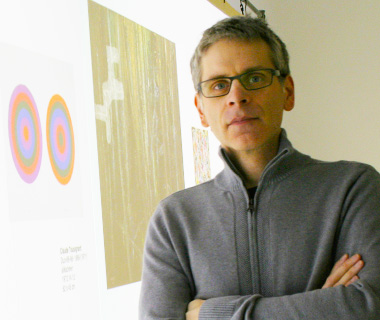
Title:
Visualization and Taxonomy
Abstract:
This talk will consider the relationship between visualization and taxonomy from two perspectives. Firstly, how visualization can aid understanding the process of taxonomy, specifically biological taxonomy and the visualization challenges this poses. Secondly, the role of taxonomy in understanding and making sense of the growing field of visualization will be discussed and the challenges facing the visualization community in making this process more rigorous will be considered.
Speaker Bio:
Jessie joined Edinburgh Napier University in 1986 as a lecturer, was promoted to Senior Lecturer, Reader, and then Professor in 2000 Thereafter she held the post of Director of the Institute for Informatics and Digital Innovation from 2010-14 and is currently Dean of Research and Innovation for the University.
Jessie has published widely, with over 100 peer-reviewed publications and over £2 million in research funding from a range of bodies, including EPSRC, BBSRC, National Science Foundation, and KTP, and has had 13 PhD students complete. She has been programme chair, programme committee member and organiser of many international conferences, a reviewer and panel member for many national and international computer science funding bodies, and became a Member of EPSRC Peer Review College in 1996 and a Fellow of the British Computer Society.
Jessie has a long-standing record of contribution to inter-disciplinary research, working to further biological research through the application of novel computing technology.
Her research in the areas of user interfaces to databases and data visualisation in biology contributed to the establishment of the field of biological visualisation. She hosted the first biological visualisation workshop at the Royal Society of Edinburgh in 2008, was an invited speaker at a BBSRC workshop on Challenges in Biological Visualisation in 2010, was a founding member of the International Symposium in Biological Visualisation – being Programme Chair in 2011, General Chair in 2012 and 2013 – and steering committee member since 2014.
She has been keynote speaker at related international conferences and workshops, such as VIZBI, the International Visualisation conference and BioIT World, and is currently leading a BBSRC network on biological visualisation.
Her research in collaboration with taxonomists at the Royal Botanic Gardens, Edinburgh, produced a data model for representing differing taxonomic opinions in Linnaean classification. This work led to collaboration on a large USA-funded project with ecologists from six US universities and resulted in a data standard for the exchange biodiversity data that has been adopted by major global taxonomic and biodiversity organisations.
Event details
- When: 7th November 2017 14:00 - 15:00
- Where: Cole 1.33a












